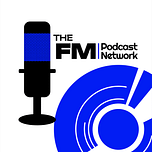From The Dylantantes and their Million Dollar Bash Roundtable. The regular edition is 20 min, the FM+ Extended Edition for Paid Subscribers is 48 min.
The Basement Tapes occupy a unique place of honor in the pantheon of Dylan legends. Coming just after two other legendary events—the “going electric” performance and subsequent tour and Dylan’s motorcycle accident—the 1967 recordings were a collaboration between Bob Dylan and his previous backing group who would soon after become the members of The Band. The tracks they laid down—first in Dylan’s house in Woodstock, NY, and then literally in the basement of the house dubbed Big Pink that three members of the Band rented—were never meant for the public. They consist of covers of pop songs, folk numbers, and blues. In addition They recorded a large number of Dylan originals, some apparently intended as demos for other musicians to record.
Public interest in the sessions was piqued by the release of the Great White Wonder in 1969. Widely regarded as the first rock bootleg, the album features five Dylan originals from the Basement Tapes. Given Dylan’s minimal public presence at the time, this bootleg could not help but excite the fan base.
In 1975 Columbia released an album entitled The Basement Tapes, which consisted of a number of these recordings along with some demos from The Band, who were still active and popular. It was inevitable that many more of these storied recordings would make their way into Dylan aficionados’ collections as bootlegs, some of which purported to be complete. In truth, even 2014’s The Bootleg Series Vol. 11: The Basement Tapes Complete is likely not all there is. And Dylan also penned many lyrics without any musical accompaniment during this period, some of which were set to music and released on the 2014 album The New Basement Tapes, produced by T. Bone Burnett and featuring luminaries such as Elvis Costello and Rhiannon Giddens.
Greil Marcus documented the circumstances and significance of these recordings in his 1997 book Invisible Republic updated in 2011 as The Old, Weird America. Marcus’ book squarely positions them in the American musical tradition.
Today we will address just the cover songs from The Basement Tapes. Look for the upcoming release of part 2 when we discuss the Dylan-penned numbers.
Topics Discussed
The Significance of the Basement Tapes: The Basement Tapes are a crucial moment in Bob Dylan's career, occurring after his electric performance and motorcycle accident. These recordings, made in 1967 with his former backing group (who would become known as The Band), were initially intended for private use and included a mix of covers and original songs. Public's interest surged after the release of the bootleg album "The Great White Wonder" in 1969, which featured five Dylan originals from these sessions. This sparked a fascination among fans during a period of minimal public appearances by Dylan.
The Evolution of The Band’s Musical Style: The podcast discusses how Dylan's collaboration with The Band during the Basement Tapes sessions contributed to their transformation into a group that embraced Americana and roots music. Robbie Robertson noted that Dylan introduced them to traditional songs, which opened their eyes to the emotive power of this genre, diverging from their initial R&B and rockabilly influences. This shift laid the groundwork for their later success, including the iconic "Music from Big Pink."
The Role of Covers in the Basement Tapes: The episode highlights the importance of the cover songs such as "My Bucket's Got a Hole in It" and "The Old Triangle." The panelists discuss how Dylan's interpretations of these songs added new dimensions and emotional depth, allowing the musicians to explore and reinterpret traditional material in innovative ways. This creative freedom contributed to the unique sound and atmosphere of the recordings.
Dylan's Intent and the Recording Environment: The discussion touches on the ambiguity surrounding Dylan's intent during the Basement Tapes sessions. The panelists speculate whether Dylan was consciously teaching The Band about American music or simply enjoying the process of making music in a relaxed, informal setting. The basement environment itself is seen as a significant factor, creating an intimate space for experimentation and collaboration, free from the pressures of formal recording studios.
Richard Manuel's Role and Dynamic with Dylan: Richard Manuel's presence and contributions during the Basement Tapes sessions are celebrated. His humor and self-deprecating nature provided a lighthearted dynamic that contrasted with Dylan's more serious persona. The camaraderie between Dylan and Manuel is noted as a vital aspect of the sessions, enhancing the overall atmosphere and resulting in memorable performances and interactions.
The Mysterious Nature of the Recordings: The panelists explore the enigmatic quality of the Basement Tapes, emphasizing that many of the recordings were not initially intended for public release. This raises questions about the authenticity and spontaneity of the music. The conversation highlights how the tapes capture a moment in time, filled with raw creativity and experimentation, making them a treasure trove for fans and music historians alike. The ongoing allure of the Basement Tapes lies in their ability to evoke curiosity and inspire interpretations, even decades after their creation.
There are nearly 40 episodes of The Dylantantes for you to enjoy.
Check them all out here.
Paid Subscribers and Premium Members gain access to The FM+ Podcast Network with Extended and Bonus episodes of seven (and growing) podcasts including The Dylantantes, Watching The Covers Flow, Pod Dylan, and Infinity Goes Up On Trial.










